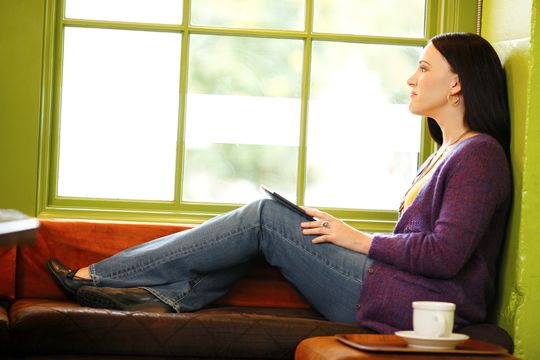Mental Health and Addiction: From On-Site to Online

Image: Courtesy Kaiser Permanente
“When we think about individuals struggling with mental health or addiction, so often isolation is a component of their struggle,” says Elisa Uris, director of Kaiser Permanente Brookside Center for mental health and addiction. “Then you add Covid-19, and any kind of natural support system is suddenly ripped away.”
During a time when Oregon’s mental health services were overwhelmed or shutting down because of Covid-19-related stressors, Brookside Center remained open, remodeling its two in-house treatment programs for online use.
A Crucial Pivot
Since 2008, Brookside Center, located in Clackamas, Oregon, has offered two voluntary residential treatment programs: one for mental health and another for addiction medicine. The programs traditionally require members to reside at the facility, where a total of 40 beds are divided between the two specialties.
Brookside Center prioritizes 24-7 care, providing individual and group therapy along with psychiatry and addiction medicine visits in a safe environment for members deemed high risk for self-harm. When Covid-19 spread through Clackamas County, Brookside’s residency immediately decreased.
“Who wants to go into a 24-7 setting with 19 other people not including the staff?” says Uris, who understood members’ aversion to being in a residential environment despite needing treatment. In response, her team developed a seven-day-a-week virtual mental health program through which members could receive the high level of care Brookside Center provides, but from the comfort of their own homes.
“I think this was a great opportunity,” says Uris. “Higher-risk populations could not only interface with providers but be in this group setting virtually where patients are interacting with each other.”
The addiction program soon followed suit, offering online group therapy sessions and one-on-one treatment—a boon for members in need during a time when Covid-19-related isolation, substance use, and psychological trauma were on the rise.
Putting Members’ Safety First
For members whose care requirements exceeded what the online programming could provide, Brookside Center opted to allow a limited number of residents to receive treatment on-site.
To ensure resident safety, staff quickly adopted strict protocols around mask wearing, cleaning, and physical distancing, which included limiting the number of members present in group therapy sessions; to date, they haven’t had a single Covid-19 case within their facility.
“There are likely members who would prefer to do a virtual program, but due to their level of clinical needs they require the 24-7 setting,” says Uris. “We can’t control the environment virtually as much as we can here, so we have to mitigate the risk as best we can.”
The Return to Normal (for Now)
As Covid-19 restrictions began lifting in early June, Brookside Center’s beds began to fill back up, prompting them to pause the online mental health program and maintain the online addiction program until it is safe to return to the regular group size on-site.
“When the unit is full, we can’t offer the virtual program,” Uris says. “Both programs provide very intensive treatment, and we didn’t want to detract from the quality being provided. But now that we’ve done that work, it’s in our back pocket if needed to meet our member and community needs.”
Like many health care providers, Uris is concerned about a potential Covid-19 resurgence, but she remains confident that her staff at Brookside will readily pivot again to help members struggling with mental health and addiction continue to get the help they need without risking Covid-19 infection.
“We don’t know what’s going to happen with Covid-19 or future infection rates in our communities,” she says. “But I’m proud of the team’s navigating how we can continue to serve the members who are suffering with these issues. We need to keep people safe.”
For no-cost tools and resources to support your own mental health during this time, visit kp.org/selfcare.




